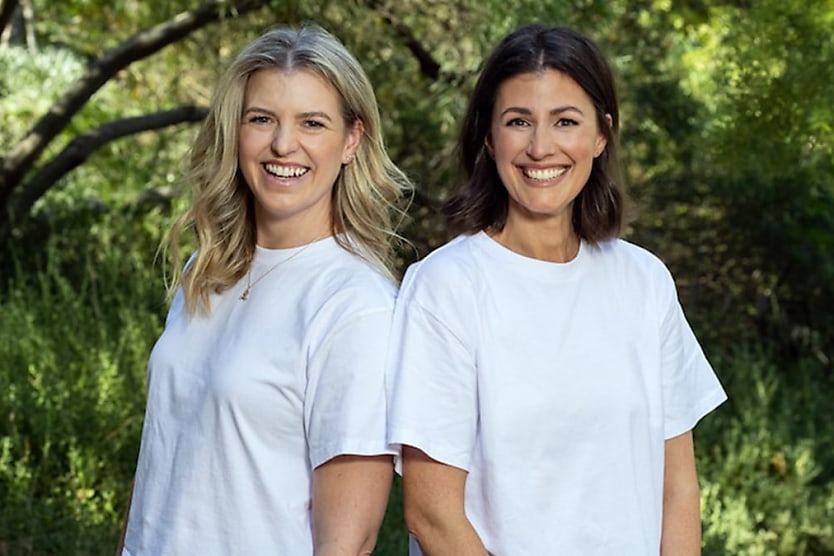Can job-sharing in politics work?
SHARE THIS ARTICLE

A new vision has entered Australian politics, with trailblazers Lucy Bradlow and Bronwen Bock attempting to job-share the role of a senator for Victoria.
In a recent HR Leader podcast episode, Lucy Bradlow and Bronwen Bock from the Better Together Party shared their experiences as job-sharing candidates for the Victorian Senate.
In just two months since its inception, the Better Together Party is gaining momentum, with 1,500 Australians signing up to support Bradlow and Bock.
“The response has been overwhelming,” Bock said.
“Over 1,500 people have signed up because they want a party that puts their lives, families, and realities first. Australians are tired of the same old political games – they want leaders who genuinely understand their struggles, not politicians controlled by special interests.”
Job-sharing has been an increasing option for workers in Australia. It operates with two (or more) employees sharing duties of one full-time role, with each doing their part to get the job done. However, this is the first time two candidates have attempted to share the role of a senator.
“By allowing two people to share a single Senate seat, the party hopes to break down barriers that prevent people from participating in politics. This model could transform how Australians experience leadership, offering better representation and more effective decision making,” said a Better Together Party media release.
Both Bock and Bradlow believe that Parliament should be like any other workplace, setting a precedent that flexibility and job-sharing options can exist in that space, despite detractors arguing for the traditional practice of one person, one seat.
“We plan to work week on, week off with a handover at the end of each week. So, it’s cost-neutral for the taxpayer. But the mechanics feel quite straightforward to us. It’s the perceptions that people often say are what they come up against,” Bock said.
Bradlow said: “There’s an implication that you have to be available 24/7. You need to be able to travel to Canberra up to 22 weeks a year. You need to be able to take off a certain amount of time from work in the lead-up to the election.
“You need people around you that can fund a political campaign, which is getting increasingly expensive. You have to have people who are able to support you while you’re running and then support you while you’re an elected member of Parliament.
“That is diminishing who can be a representative of their community. And our Parliament is poorer for it. We need to have people who truly represent their communities from across the country and who feel passionately about making sure that their communities and their states have a voice in the Parliament and that they feel representative. That’s absolutely fundamental to us being a democracy.”
Workers across Australia have been pounding the pavement about their right to flexibility, yet sometimes, for certain situations, a hybrid or remote role isn’t applicable. Job-sharing can offer that other option that workers need, especially working women.
“I hope that one of the main things to come out of this campaign is that we will draw attention to job-sharing as an opportunity for people across sectors and across industries to take up job-sharing in senior-level roles. Because it’s good for the economy to have more women in the roles that they are qualified to be in and that they deserve to be in,” Bradlow said.
Bock believes that if a job-sharing role would be a worker, then it’s fundamental to at least initiate that conversation with their employer.
“Have a conversation with your workplace, and in advance of that conversation, give it some really good thought and work through how it could work. What do you need for yourself? Then, design around that and then think about what the other part of the role could look like and maybe who could do it.
“Maybe you’ve got a colleague at work who you think would be the perfect other fit for the role or somebody you know in your network. I think often these things work really well when there is a connection or rapport between the job-share partners. It’s not crucial. These things can come together by external advertising, but often, they do come together through people who know each other and know they can work together and feel confident.
“They’ve got that trust and respect and way of working. So give it some good thought and design and then be empowered to have the conversation,” Bock said.
With most Australian workplaces viewing flexible work options as a necessity for retaining staff, those conversations with an employer should be accepted or at least listened to.
“Workplaces are now becoming more progressive, and they want to make things work to support their employees. Who would have thought that five years ago or so we’d all be able to work flexibly and work from home,” Bock said.
“But COVID did a lot to change that, and there are future waves to be had in how workplaces do things to attract and retain top talent. I would try and feel empowered to have the conversations and be prepared in those conversations.”
The transcript of this podcast episode was slightly edited for publishing purposes. To listen to the full conversation with Lucy Bradlow and Bronwen Bock, click here.
RELATED TERMS
In a hybrid work environment, individuals are allowed to work from a different location occasionally but are still required to come into the office at least once a week. With the phrase "hybrid workplace," which denotes an office that may accommodate interactions between in-person and remote workers, "hybrid work" can also refer to a physical location.
Kace O'Neill
Kace O'Neill is a Graduate Journalist for HR Leader. Kace studied Media Communications and Maori studies at the University of Otago, he has a passion for sports and storytelling.

